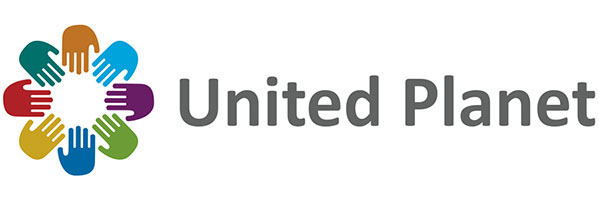Our Perspectives series features op-ed pieces from guest bloggers, United Planet contributors, and volunteers. Through this series, we aim to illuminate different viewpoints and foster open discussion and cross-cultural understanding between people of all different backgrounds. This Perspective is written by guest blogger Dr. Yingyi Ma, Assistant Professor in the Department of Sociology at Syracuse University.

Source: economicas.ua.es
China has become the No. 1 sending country of international students to American universities. The new trend is that increasingly younger cohorts of students arrive as undergraduates or high schools students, who may find themselves constantly in a cross-cultural zone that demands their adjustment, learning and reflection.
Academic integrity is a formal expression that carries grave consequence. Many Chinese students equate it with “no cheating”. But what does it really mean? It seems more straightforward during formal testing. For most of Chinese students who often go through their academic careers through formal testing, they readily understand what “no cheating” means, and readily comply with it. However, once they study overseas, particularly in western universities, exams are far from the whole evaluative system. Essays, papers, projects are often the mainstay of the evaluation. How are academic integrity manifested in these various forms?
Often, the term papers require external research and citations. American professors often assume that students know the rules of citations and so do not bother to give instructions again. Many American students indeed have had this instruction back in high schools. Write with your own words, and if you need to use others’ words, even if only one word, you need to quote them and provide the page numbers. Such clear-cut rules are obvious for most of the American students who have had academic writing lessons back in high school. However, many Chinese students are not familiar with this as this is not part of their education until college, and for some, until graduate school. And occasionally the rigor and the uncompromising nature of the citations rules are not communicated effectively even for graduate students when they were in China, depending on their fields of study and institutions they enrolled. As such, what is often assumed by American professors as something basic and fundamental requires no less of arduous efforts on the part of Chinese students to gain education and experience with after they arrived on American college campuses.
In other words, academic integrity carries not just hefty ethic and moral weights, but may also be confounded by social and cultural differences underlying distinct education systems that teach and enforce academic integrity. We used to think that for international students coming to the American universities, they need to adapt and learn the American way and the American professors’ expectations. That is reasonable thinking. What is no less reasonable yet often neglected is American universities also need to be aware of the potential cultural and social differences that may give rise to the “expectation gap,” and therefore, need to be more patient, and at least give students benefit of the doubt during the early days of foreign students’ campus life. For example, in the face of a student violating the rules of not quoting the original source, do not rush to the judgment that this student is cheating, but try to find out first what is going on, and whether the student is even aware of such a violation.

Source: studenthealth.uiowa.edu
To my knowledge, some universities in the U.S have already been aware that differences exist in the understanding and practices of academic integrity across cultures and societies, and to address that, they have incorporated some workshops into orientation programs for new international students specifying a clear definition and expectation of academic integrity. This is potentially helpful in providing information and setting up expectations. However, it has to be handled with care and cultural sensitivity, as this could be interpreted by new foreign students as condescending and distrust. A friend of mine once told me that her school said explicitly in the orientation that “no matter what you are used to in your own country, the U.S. does not tolerate cheating or plagiarism.” She was clearly uncomfortable with this statement, saying “this sounds as if we are all cheaters already?!” She said this feeling of discomfort was widely shared by international students attending this workshop. As such, when professors and school administrators explain the guidelines for academic integrity, they need to be careful in not being perceived as having some preconceived negative stereotypes of foreign students and their education backgrounds.
In addition, the understanding of academic integrity is often confounded by language barriers of international students. Sometimes clear guidelines are written on the syllabus, and/or conveyed orally by professors in class, but it might not instantly register on the minds of new foreign students due to language barriers. For example, one student took a special calculator—the one he used with permission during SAT exam–to his math exam in college, because the message on the syllabus that this special calculator is forbidden for use did not register on his mind. He assumed that the calculator acceptable during SAT exam must be fine for other exams. He was seized on the spot by his professor who accused him cheating without hesitation. This would lead to him being expelled from school. Fortunately, another professor knowing him as a math whiz with strong talent and conscientious attitude in other math courses consider this as an isolated event arising purely out of communication failure, and thus saved him out of this potentially disastrous situation. Eventually the cheating charge was dropped. Now he is an honor student and will be graduating a year earlier than his cohorts.
In sum, adaptation like communication is the two-way street. When we expect international students to adapt to American colleges, we do not want to neglect the active role on the part of American colleges to adapt as well. This entails understanding, patience, and sometimes perhaps, inconvenience on the part of American college professors and administrators. In the end, what international students contribute to American Universities may far outweigh the inconveniences. It is time for American universities to come to grips with the efforts they need to make as well to create a positive and nourishing learning environment for international students.
ABOUT UNITED PLANET
United Planet is a non-profit organization with a mission to create a global community, one relationship at a time. Established in 2001, United Planet offers volunteer abroad, virtual internships, internships abroad, gap year volunteering, and global virtual exchange in more than 40 countries.





1 comment. Leave new
Such an insightful post. Growing up exclusively in the US educational system, I never really thought about the cultural bounds of academic integrity. Thank you for sharing, Dr. Ma.